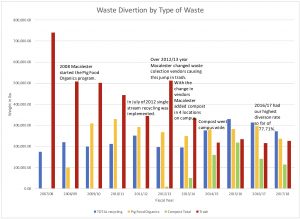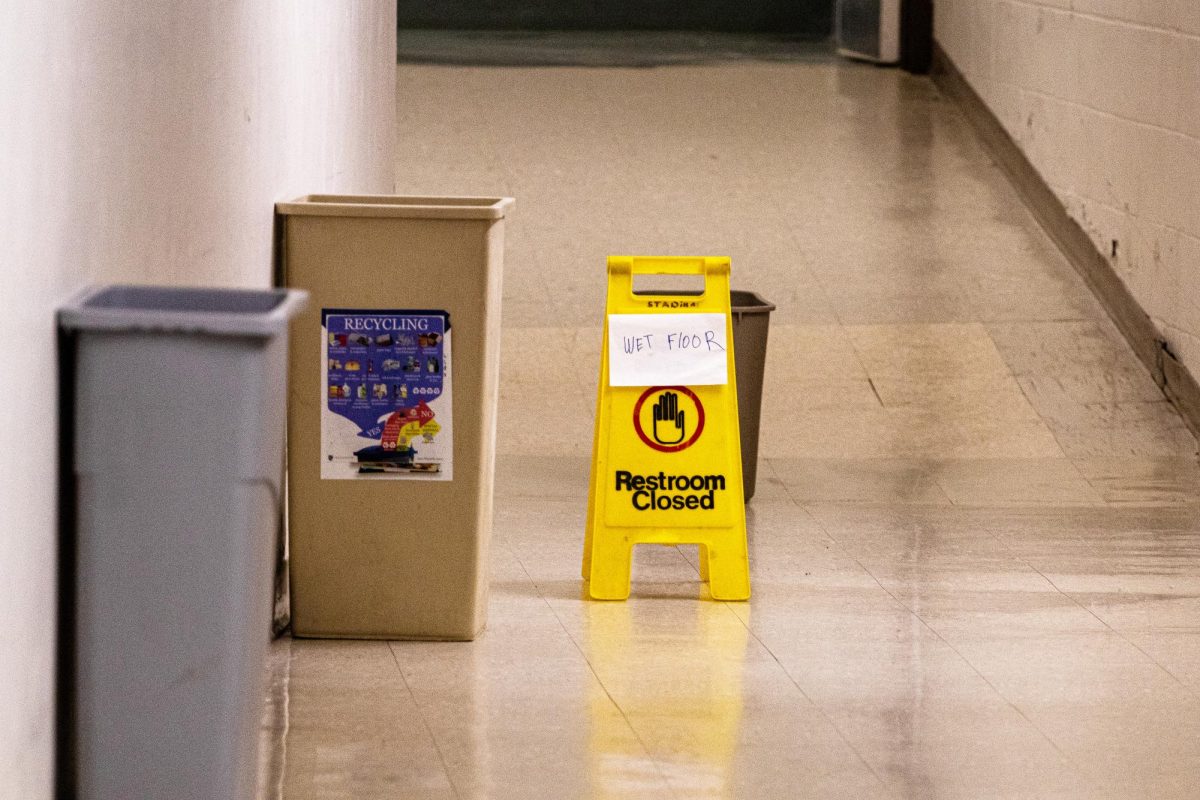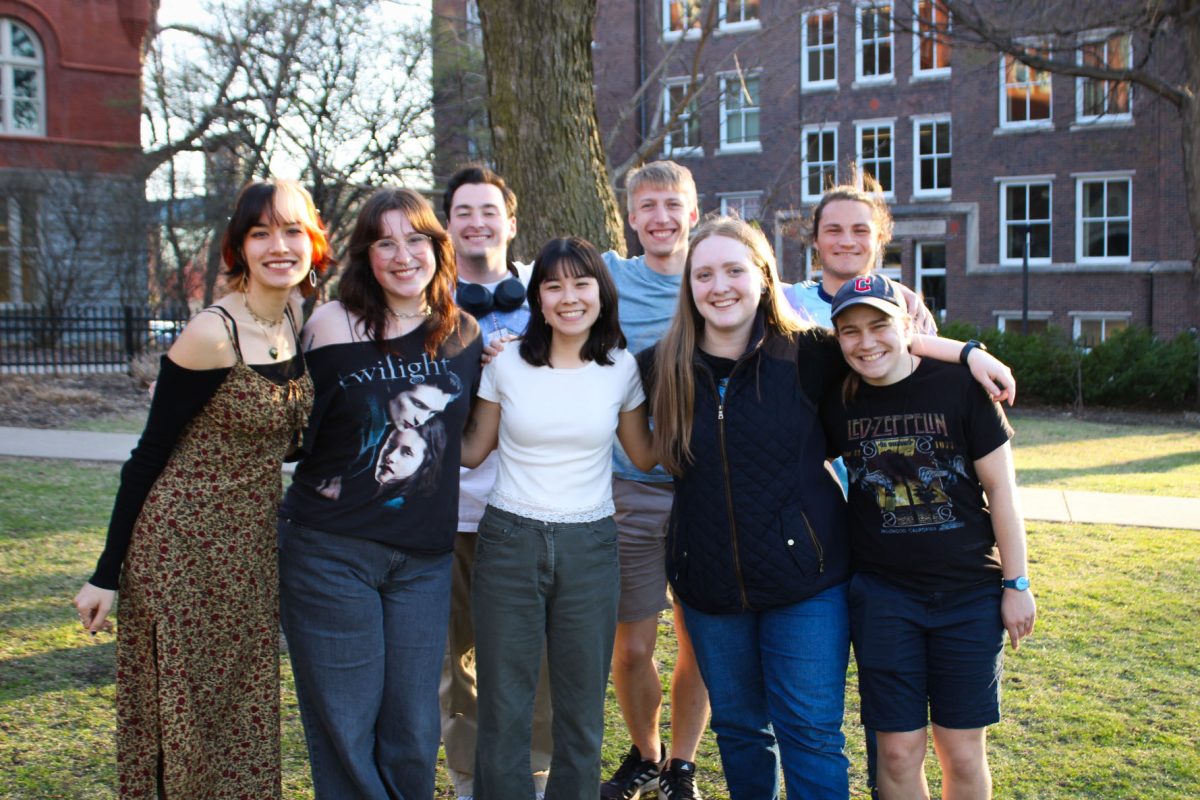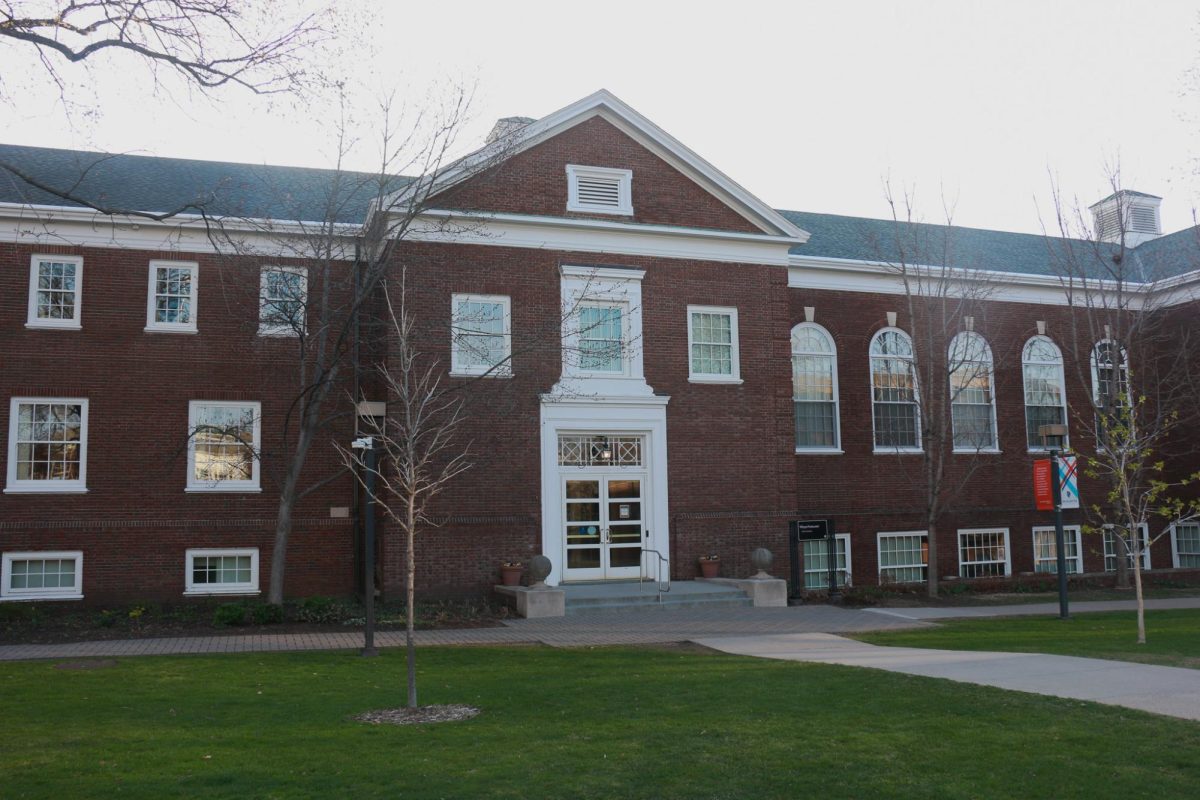With several of Macalester’s self-imposed sustainability deadlines rapidly approaching, the college is struggling to meet its Zero Waste by 2020 goal. To achieve “zero waste” status, Macalester would have to divert 90 percent of its total waste away from landfills and incinerators. The college made steady progress towards this goal until the 2014–2015 academic year — the total amount of diverted waste has hovered somewhere between 70 and 80 percent since.
According to the Zero Waste Committee, which oversees the college’s progress, the biggest hurdle to reaching that goal is contamination of trash bins with compost and recycling.
This is especially a problem in department offices.
“We have a lot of contamination from deskside bins for staff and faculty,” Zero Waste Coordinator for Facilities Services Ana Gvozdić ’21 said. “By their desks they have a bin that’s recycling and a bin that’s trash, but they don’t have a compost bin.”
The dorms have a similar problem.
“A lot of students get one bin for themselves and then throw everything in it and then throw the entire bin into the trash,” Gvozdić said.
To encourage students and staff to pay more attention to where their waste goes, the Zero Waste Committee recently designed small signs for rooms and offices. By taking on one of the signs, which read “I separate my waste to help Macalester achieve zero waste by 2020,” students and staff commit to correctly sorting their own waste.
“When you agree to do it yourself, you interact more with the signs that we have above the bins, and there’s a much greater chance [that] you will compost your compostables,” Gvozdić said.
“The sign creates this kind of idea that this is something that people care about on our campus, and [it] can motivate other people to do it, too,” she continued.
So far, approximately 70 staff and faculty members have filled out forms to get these signs for their office doors, and several more have picked up signs in person from committee members.

The Zero Waste Committee hopes to encourage students to take responsibility for their waste beyond just using the signs, too.
“We’re working now with Residential Life to institutionalize [sorting waste] through the roommate agreement,” Gvozdić said. Though this process hasn’t been completed yet, the Committee believes it could help with the contamination problem.
Part of the zero waste goal depends on what the community around Macalester’s campus is doing, too. Restaurants and businesses off campus often don’t use compostable or recyclable products, and those products find their way back to campus trash bins.
“We’re at the mercy of what people bring in,” Sustainability Manager Suzanne Hansen said.
The Committee is attempting to address this problem for campus events, which often bring in catered food packaged in non-compostable materials.
With just a year until the zero waste deadline, there’s only so much the committee can do to solve the issue. Since the problem largely stems from waste ending up in the wrong bins, the solution is primarily in the hands of students and staff.
“It takes time. I don’t think one year is going to do it,” committee member Hazel Chew ’19 said.
Gvozdić echoed Chew’s concerns.
“I think that with the obstacles we’re facing, we’re doing the best thing we can… I’m just trying to think about the strategy that is the best,” Gvozdić said.
Hansen was slightly more optimistic about meeting the goal.
“I think it’s doable,” Hansen said. “If all the compostables got into the compost, we would be there now. So if we can do a push to get over the hump, then we can do it. We can’t do it if people don’t pay attention or just aren’t thinking when they put their stuff in their bins.
“If we were at a 50 percent diversion rate, I would say we don’t have a chance,” she said. “But it’s getting close, it’s possible.”
Regardless of whether or not Macalester reaches its goal by 2020, the committee plans to maintain its efforts to push the diversion rate to 90 percent and keep it there.
“I think this education would need to continue on,” Gvozdić said. “It will still always depend on the people.”








Evan Walsh • Sep 10, 2019 at 10:50 am
It’s actually a cool and helpful piece of info. I am glad that you shared this helpful information with us. Please keep us up to date like this. Thanks for sharing.
Donna Skinner • Sep 7, 2019 at 3:23 am
Hahahaha, what a comical this YouTube video is! I am still laughing, thanks to admin who had posted at this web page.